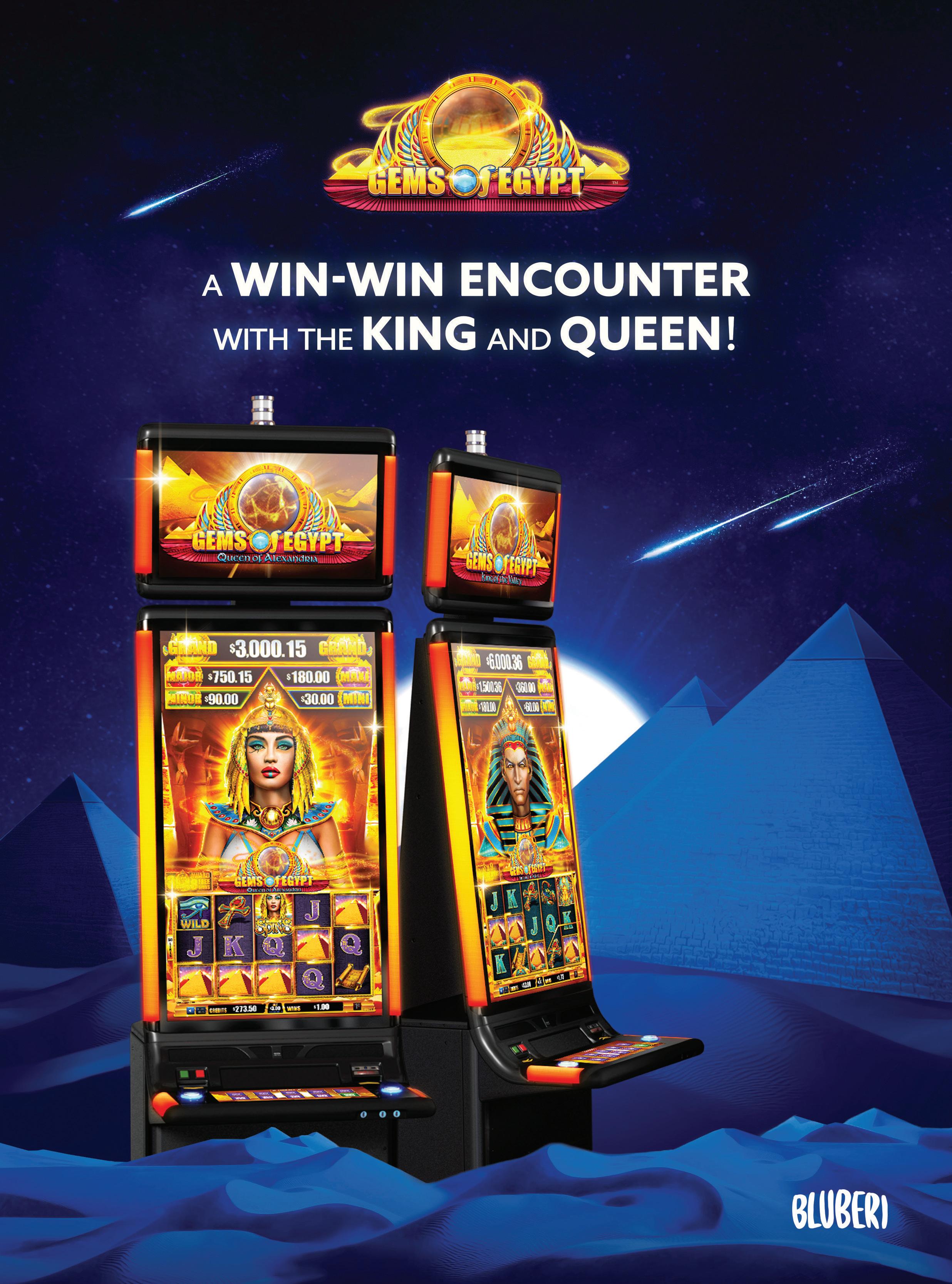
10 minute read
AT ODDS
With the country in a period of serious and consequential self reflection and change, Jeffrey Silver, Of Counsel at Dickinson Wright, PLLC, explores the possibility of the gaming industry moving toward a more socialist framework.
The United States appears to be at a crossroads in deciding whether its people will or should embrace the concept of socialism. The last election exposed the great economic and power imbalance in this country, which initially focused on the privileges and advantages enjoyed by the rich versus the middle class. But has since pivoted to perceptions of prejudices and disparate treatment between citizens and non-citizens, as well as people of European descent and people of color, sexuality, gun owners and gun abolitionists, and every other manner that people who were once united could be divided. All of these polarizing issues have created dissention, anger and in some cases, violence. Many of us are in a state of shock to see how rapidly the fabric of our society is being deconstructed, while certain media outlets have eagerly fanned the flames of controversy in order to keep this powerful narrative of divisiveness and tension in the forefront of everyone’s mind. Meanwhile, after a year of closure, the gaming industry has been dealing with its own economic and human resources turmoil and is content to be distracted from what could be transformative events. Despite catch-word claims of “virtue signaling,” the vast majority of Americans actually agree with the democratic principles of equal justice, equal opportunity, fairness and non-discrimination for all. The stumbling point would be the suggestion that there should be an equal outcome for all, which is contrary to a meritocracy. There will be no All Star Game in Georgia this year and if some have their way, perhaps every WNBA player will be paid the same salary as Steph Curry or LeBron James. After all, under true socialism, everyone must be equal, and individual talents or star power would become meaningless attributes.
Where does all of this change leave the gaming industry? Las Vegas has certainly experienced a recent pent-up demand by customers anxious to escape from their year-long
lockdowns. Spring break and the NCAA basketball tournaments brought throngs of visitors back to Nevada casinos, in some cases, much to the chagrin of political leaders fearful of another Covid surge. Recent reports now show that pedestrian traffic on the Las Vegas Strip is at 60% of prepandemic numbers. The Gaming Control Board and Nevada Gaming Commission released a statement that full occupancy and capacity would be available to gaming facilities who managed to have most or all of their employees vaccinated.
New megaresorts and attractions have opened or will open soon with the Virgin Hotel remake of the Hard Rock, the MSG Globe arena and the multi-billion dollar Resorts World complex. Major conventions are starting to rebook with the giant World of Concrete conclave scheduled this June and more to follow by the end of 2021. These shows will occupy the magnificent $1 billion Las Vegas Convention Center expansion, and other significant events such as the NFR Rodeo and sporting events at the new stadium will all be allowed to resume at full audience capacity.
We are intently absorbed with new gaming opportunities in the US and abroad, and are giddy with the excitement and financial prospects of sports wagering. The question is whether this burst of enthusiasm will continue long term, or, more importantly, if it will be allowed to continue in a country heading in a different direction.
With increasing scrutiny on the federal government, will there be the same discretion and self-determination previously left to the states and private industry? Many years ago, I was involved with a licensing decision as a member of the Nevada Gaming Control Board. The denied applicant appealed to the Ninth Circuit Court of Appeals, which upheld the Commission’s decision by proclaiming that gaming was a matter reserved to the states under the Tenth Amendment to the US Constitution.
However, last year, the idea of a bi-partisan sports wagering bill was floated in the US Senate. Although the leagues were intrigued by the proposal because of their inability to gain traction for their own revenue participation on a state-by-state basis, the bill was withdrawn. However, this could be the nose of the camel into gaming’s tent. With the increasing centralization of authority in Washington, DC, and the impotence of traditional “checks and balances,” I am not convinced that gaming regulation would remain solely in the hands of local governments if this issue were tested today.
On a local level, there’s still evidence of some disagreement in the clash of these new ideologies. During the last presidential primary, the powerful Culinary Union, an affiliate of Unite Here!, supported the moderate Joe Biden over Bernie Sanders. The Culinary leadership preferred the health insurance and wage packages they had negotiated with the resort industry and were in no mood for universal healthcare proposals that could disturb or dilute the first-class benefits already accorded to their members. A recent announcement was made by John Lee, the democratic mayor of the City of North Las Vegas (Nevada’s 4th largest city), that he was changing his party affiliation to republican because he claimed the democrat socialist contingent has taken over the state democrat party organization.
Lest anyone harbor any illusions as to what the socialist hard liners might think about gaming, seven years ago, Robert Galvin, who described himself as a philosopher, sociologist, and religious studies scholar, responded to the question, “Is gambling against the ideals of socialism?” by stating the following:
“It seems like it would be obvious why it would not be looked upon favorably if it was a privately run enterprise, so I will not go there. However, how about if it was an enterprise run by the state or the majority? It still seems like it would be viewed in a non-favorable manner as the idea of gambling is for one to have the house win the majority of the time and for the people who are betting to lose. Ideally, in a socialist society there would be no need for gambling as there would be no rich nor poor people, so there would be no need for one to wager their wealth in order to get rich.”
This view was recently repeated through postings on the World Socialist website.
Others would quickly point out that people don’t gamble solely with the expectation of winning money. It is the total resort-casino experience, which may include the reward of periodic wins on games of chance, but also embodies the camaraderie with fellow patrons, the exciting atmosphere of entertainment, sporting events and the best of dining, shopping and relaxation. Of course, such attributes may be anathema to anyone willing to ignore the niceties of any argument for the value of casinos.

JEFFREY SILVER
While it’s true that gaming was tolerated during many periods in the old Soviet Union, in Russia today, like it was in Cuba immediately after their revolution, casinos have now been banished. There are exceptions, such as Viet Nam and Laos, both of which have encouraged casino resorts as a part of their tourism component. However, their intent is to serve as a playground for visitors and their wallets, rather than provide an entertainment diversion for local residents.
Despite a large and growing wealthy class in the Peoples Republic of China (PRC), casinos cannot be found inside its traditional geographic borders, and gaming is only permitted in Macau, where entry by its elite gamblers is tightly controlled, and information about the gambling habits of its guests is likely shared with the government. Given the current adversarial stance between the US and the PRC, as well as worldwide travel restrictions upon other nations, it’s unlikely we’ll see either high-rolling Chinese customers or other international visitors in this country in the foreseeable future.
How would greater government involvement affect our gaming industry? Would runaway inflation caused by the relentless printing of currency significantly reduce discretionary spending? In the short term, there is probably nothing to fear because if anything, stimulus funds and the prospect of a minimum guaranteed income would be the kind of free money that could easily fuel casino profits. Jobs are returning and there is euphoria about surviving the year-long winter. However, there’s also the expectation of higher minimum wages and increased prices of goods combined with significantly higher taxes on corporate, personal, gaming and gasoline that, when combined with the prospect of enhanced regulation, could mean that future profits can no longer be assured.
The question is whether the gaming industry will be able to fade these higher operating costs. For example, a blackjack game with a $10 minimum bet would not be profitable. Using 60 hands per hour as a standard measure for a live game, with a $10 average bet multiplied by the true odds of the game (2-3%), the calculated win per hour per player, before taxes, wages and benefits, would only be $12 to $18. Even if the minimum bet were $25, the win would still only be $30 to $45. With fewer people allowed at the table because of health concerns, and adding all of the salary, benefits, supervision, player premiums and overhead, very little profit would remain. This is why the mobile gaming participants will have a leg up on the brick-and-mortar operator, at least in terms of gaming revenue.
The gaming industry is a fragile ecosystem. Whenever a public offering for a casino company is released or a loan is made from an institutional lender, there’s always that one disclosure caveat in their documents about “in the event the laws are changed such that the ability to conduct gaming is affected, that would be a material adverse event.” Again, we are not in that realm today, but we have also witnessed how quickly the tides can change. Despite the best efforts of the industry, a new narrative could quickly morph into a new and very destructive direction.
Of course, claims that the sky is falling occur at the start of every new presidential cycle. But in discussions with my colleagues, this challenge appears to be different. On that basis, I say we look past the euphoria of that quick financial recovery and sail these uncharted waters as if we were ancient mariners fearing to fall off a flat earth. We must continually remind our political representatives to stay focused on the many benefits provided by the gaming industry, the importance of maintaining local control, and to be wary of a socialist utopia.
I am reminded about the heart-wrenching video of a seal that was rescued from the sea after the Exxon Valdez Alaskan oil spill in 1989. Covered in tar, the seal was not expected to survive, but with the assistance of an environmental group, it was nursed back to health, to be released back into its natural habitat. While the cameras were rolling, and with great fanfare, they freed the young seal in the harbor to enjoy the rest of his life. Almost immediately, much to the horror of his caregivers and assembled onlookers, the poor seal was swallowed in one bite by a killer whale that was lurking nearby. We are grateful to have survived this pandemic disaster and finally have nursed ourselves back to health. Now is not the time to lose perspective and vigilance as we navigate the murky waters that still lie ahead.
The views and opinions expressed in this article are those of the author and do not necessarily reflect the official policy or position of the publisher.











